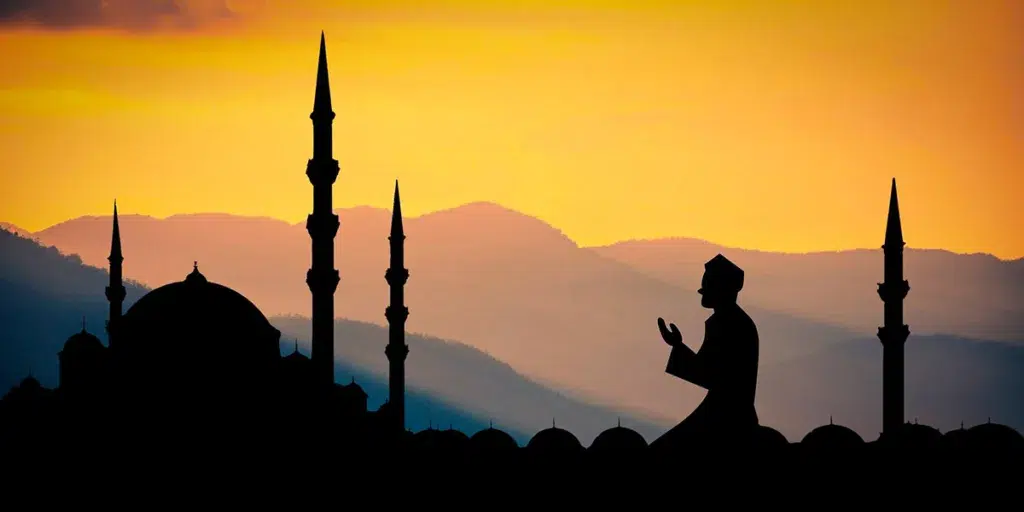The Holy Month of Ramadan: A Time for Spiritual Renewal and Reflection
Ramadan, the ninth month of the Islamic calendar, is a sacred period observed by millions of Muslims worldwide. It is a time for fasting, prayer, self-reflection, and spiritual growth. The essence of Ramadan extends beyond abstaining from food and drink; it is a journey of faith, discipline, and self-purification. This guest post explores the significance, history, practices, and global impact of Ramadan, offering a deep dive into one of Islam’s most revered traditions.
The History of Ramadan
1. Origins of Ramadan
Islamic fasting dates back to the time of Prophet Muhammad (PBUH) and is believed to have been practiced in some form even before Islam. It became obligatory for Muslims in the second year of Hijra (624 CE) after the migration of Prophet Muhammad (PBUH) to Medina.
2. The Revelation of the Quran
Ramadan is the month of the Quran, as it marks the period when the Angel Jibreel (Gabriel) first revealed the words of Allah to Prophet Muhammad (PBUH) in the Cave of Hira. The first revelation states:
“Read! In the name of your Lord who created.” (Quran 96:1)
This event laid the foundation of Islam, and to commemorate this divine revelation, Muslims observe fasting and increased devotion during Ramadan.
3. Evolution of Ramadan Practices
The practice of fasting has been observed by previous religious communities as well, including Jews and Christians. Islam formalized fasting in a structured way, making it an essential act of worship.
The Significance of Ramadan
1. A Pillar of Islam
Fasting during Ramadan is one of the Five Pillars of Islam, making it an obligatory act of worship for all adult Muslims. The pillars include:
- Shahada (Faith)
- Salat (Prayer)
- Zakat (Charity)
- Sawm (Fasting)
- Hajj (Pilgrimage to Mecca)
2. A Month of Mercy and Forgiveness
Ramadan is described as the month of mercy, forgiveness, and salvation. Prophet Muhammad (PBUH) said:
“Whoever fasts Ramadan with faith and seeks reward from Allah will have his past sins forgiven.” (Bukhari & Muslim)
3. The Night of Power – Laylat al-Qadr
One of the last ten nights of Ramadan hosts Laylat al-Qadr, the Night of Decree or Power, which is described in the Quran as:
“The Night of Decree is better than a thousand months.” (Quran 97:3)
On this night, prayers and good deeds bring immense rewards, and many Muslims spend the entire night in worship.
The Rituals and Practices of Ramadan
1. Sawm: The Fast
The most defining aspect of Ramadan is Sawm (fasting), which begins at Fajr (dawn) and ends at Maghrib (sunset). During this period, Muslims abstain from:
- Eating and drinking
- Smoking
- Engaging in sinful acts
- Marital relations
Fasting is more than physical deprivation; it is an exercise in self-discipline, empathy for the less fortunate, and spiritual renewal.
2. Suhoor and Iftar
- Suhoor: The pre-dawn meal before fasting begins. It is highly encouraged, as Prophet Muhammad (PBUH) said:
“Eat suhoor, for in suhoor there is blessing.” (Bukhari & Muslim)
- Iftar: The meal at sunset that breaks the fast. Traditionally, Muslims break their fast with dates and water, following the Sunnah of the Prophet.
3. Taraweeh Prayers
Taraweeh prayers are special nightly prayers performed during Ramadan. These prayers involve the recitation of long portions of the Quran and help strengthen one’s connection with Allah.
4. Quran Recitation
Muslims dedicate time to reciting and understanding the Quran. Many aim to complete the entire Quran by the end of the month, seeking divine guidance and rewards.
5. Charity and Zakat
Giving charity is a core principle of Ramadan. Muslims are encouraged to:
- Donate to the needy
- Support charitable organizations
- Pay Zakat al-Fitr (a mandatory charity given before Eid)
The Health Benefits of Fasting
1. Physical Benefits
- Detoxification: Eliminates toxins from the body.
- Weight Management: Reduces calorie intake and promotes fat burning.
- Improved Digestion: Gives the digestive system time to rest.
- Boosts Immunity: Strengthens immune function by promoting cell repair.
2. Mental and Emotional Benefits
- Improved Focus: Enhances concentration and mindfulness.
- Reduced Stress: Spiritual practices encourage inner peace.
- Emotional Resilience: Teaches patience, gratitude, and self-control.
Ramadan Across the World
1. Middle East
- The Adhan (call to prayer) and cannon fire signal the breaking of the fast.
- Families gather for elaborate Iftar feasts, including dates, lentil soup, and grilled meats.
2. South Asia
- Streets are filled with food vendors selling pakoras, samosas, and Rooh Afza.
- Communal Taraweeh prayers are held at mosques.
3. Africa
- In Egypt, Fanoos lanterns decorate homes and streets.
- In Morocco, Harira soup is a staple Iftar dish.
4. Western Countries
- Mosques hold interfaith Iftars to foster community unity.
- Workplaces and schools accommodate fasting employees and students.
Conclusion
Ramadan is a time of spiritual awakening, self-discipline, and communal harmony. It is an opportunity to grow closer to Allah, practice self-restraint, and engage in acts of charity. As we embrace the spirit of Ramadan, let us strive to carry its lessons throughout the year.
Call to Action
Share your Ramadan experiences in the comments below! How do you observe Ramadan in your country? Let’s build a community of faith and support. Don’t forget to share this post with friends and family to spread the knowledge and blessings of Ramadan



